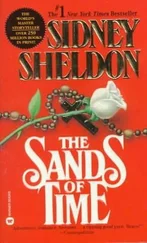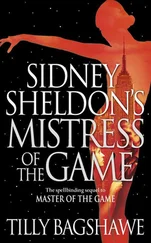When she walked into Fishman’s Drug Store, it was as though she had never been away. She saw the same bitter faces and heard the same hip, defeated chatter. She was home. She kept thinking of the doctor’s apartment. It wasn’t the furniture that made the big difference. It was so—clean. And quiet. It was like a little island somewhere in another world. And he had offered her a passport to it. What was there to lose? She could try it for laughs, to show the doctor that he was wrong, that she couldn’t make it.
To her own great surprise, Carol enrolled in night school. She left her furnished room with the rust-stained washbasin and broken toilet and the torn green window shade and the lumpy iron cot where she would turn tricks and act out plays. She was a beautiful heiress in Paris or London or Rome, and the man pumping away on top of her was a wealthy, handsome prince, dying to marry her. And as each man had his orgasm and crawled off her, her dream died. Until the next time.
She left the room and all her princes without a backward glance and moved back in with her parents. Dr. Stevens gave her an allowance while she was studying. She finished high school with top grades. The doctor was there on graduation day, his gray eyes bright with pride. Someone believed in her. She was somebody. She took a day job at Nedick’s and took a secretarial course at night. The day after she finished, she went to work for Dr. Stevens and could afford her own apartment.
In the four years that had passed, Dr. Stevens had always treated her with the same grave courtesy he had shown her the first night. At first she had waited for him to make some reference to what she had been, and what she had become. But she had finally come to the realization that he had always seen her as what she was now. All he had done was to help her fulfill herself. Whenever she had a problem, he always found time to discuss it with her. Recently she had been meaning to tell him about what had happened with her and Chick and ask him whether she should tell Chick, but she kept putting it off. She wanted her Dr. Stevens to be proud of her. She would have done anything for him. She would have slept with him, killed for him…
And now here were these two mothers from the Homicide Squad wanting to see him.
McGreavy was getting impatient. “How about it, miss?” he asked.
“I have orders never to disturb him when he’s with a patient,” said Carol. She saw the expression that came into McGreavy’s eyes. “I’ll ring him.” She picked up the phone and pressed the intercom buzzer. After thirty seconds of silence, Dr. Stevens’ voice came over the phone. “Yes?”
“There are two detectives here to see you, Doctor. They’re from the Homicide Division.”
She listened for a change in his voice…nervousness…fear. There was nothing. “They’ll have to wait,” he said. He went off the line.
A surge of pride flared through her. Maybe they could panic her, but they could never get her doctor to lose his cool. She looked up defiantly. “You heard him,” she said.
“How long will his patient be in there?” asked Angeli, the younger man.
She glanced at the clock on the desk. “Another twenty-five minutes. It’s his last patient for the day.”
The two men exchanged a look.
“We’ll wait,” sighed McGreavy.
They took chairs. McGreavy was studying her. “You look familiar,” he said.
She wasn’t deceived. The mother was on a fishing expedition. “You know what they say,” replied Carol. “We all look alike.”
Exactly twenty-five minutes later, Carol heard the click of the side door that led from the doctor’s private office directly to the corridor. A few moments later, the door to the doctor’s office opened and Dr. Judd Stevens stepped out. He hesitated as he saw McGreavy. “We’ve met before,” he said. He could not remember where.
McGreavy nodded impassively. “Yeah…Lieutenant McGreavy.” He indicated Angeli. “Detective Frank Angeli.”
Judd and Angeli shook hands. “Come in.”
The men walked into Judd’s private office and the door closed. Carol looked after them, trying to piece it together. The big detective had seemed antagonistic toward Dr. Stevens. But maybe that was just his natural charm. Carol was sure of only one thing. Her dress would have to go to the cleaner’s.
Judd’s office was furnished like a French country living room. There was no working desk. Instead, comfortable easy chairs and end tables with authentic antique lamps were scattered about the room. At the far end of the office a private door led out to the corridor. On the floor was an exquisitely patterned Edward Fields area rug, and in a corner was a comfortable damask-covered contour couch. McGreavy noted that there were no diplomas on the walls. But he had checked before coming here. If Dr. Stevens had wanted to, he could have covered his walls with diplomas and certificates.
“This is the first psychiatrist’s office I’ve ever been in,” Angeli said, openly impressed. “I wish my house looked like this.”
“It relaxes my patients,” Judd said easily. “And by the way, I’m a psychoanalyst.”
“Sorry,” Angeli said. “What’s the difference?”
“About fifty dollars an hour,” McGreavy said. “My partner doesn’t get around much.”
Partner. And Judd suddenly remembered. McGreavy’s partner had been shot and killed and McGreavy had been wounded during the holdup of a liquor store four—or was it five?—years ago. A petty hoodlum named Amos Ziffren had been arrested for the crime. Ziffren’s attorney had pleaded his client not guilty by reason of insanity. Judd had been called in as an expert for the defense and asked to examine Ziffren. He had found that he was hopelessly insane with advanced paresis. On Judd’s testimony, Ziffren had escaped the death penalty and had been sent to a mental institution.
“I remember you now,” Judd said. “The Ziffren case. You had three bullets in you; your partner was killed.”
“And I remember you,” McGreavy said. “You got the killer off.”
“What can I do for you?”
“We need some information, Doctor,” McGreavy said. He nodded to Angeli. Angeli began fumbling at the string on the package he carried.
“We’d like you to identify something for us,” McGreavy said. His voice was careful, giving nothing away.
Angeli had the package open. He held up a yellow oilskin rain slicker. “Have you ever seen this before?”
“It looks like mine,” Judd said in surprise.
“It is yours. At least your name is stenciled inside.”
“Where did you find it?”
“Where do you think we found it?” The two men were no longer casual. A subtle change had taken place in their faces.
Judd studied McGreavy a moment, then picked up a pipe from a rack on a long, low table and began to fill it with tobacco from a jar. “I think you’d better tell me what this is all about,” he said quietly.
“It’s about this raincoat, Dr. Stevens,” said McGreavy. “If it’s yours, we want to know how it got out of your possession.”
“There’s no mystery about it. It was drizzling when I came in this morning. My raincoat was at the cleaners, so I wore the yellow slicker. I keep it for fishing trips. One of my patients hadn’t brought a raincoat. It was beginning to snow pretty heavily, so I let him borrow the slicker.” He stopped, suddenly worried. “What’s happened to him?”
“Happened to who?” McGreavy asked.
“My patient—John Hanson.”
“Check,” Angeli said gently. “You hit the bull’s-eye. The reason Mr. Hanson couldn’t return the coat himself is that he’s dead.”
Judd felt a small shock go through him. “Dead?”
“Someone stuck a knife in his back,” McGreavy said.
Читать дальше











